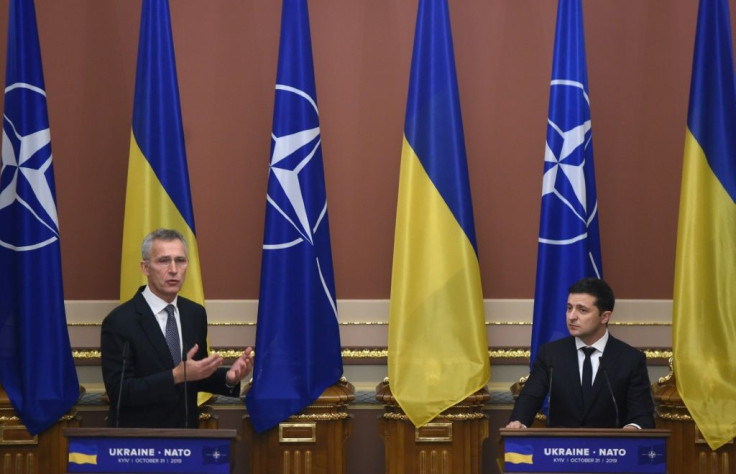Denmark's Nord Stream Green Light 'Weakens Europe': Zelensky

Ukrainian President Volodymyr Zelensky slammed Thursday Denmark's decision to grant a Russian gas project a building permit, saying it "strengthens Russia and weakens Europe."
On Wednesday, Copenhagen gave Russia's Nord Stream 2 project a permit to build a section of the natural gas pipeline on the Danish continental shelf in the Baltic Sea.
The 9.5-billion-euro ($10.6-billion) pipeline led by Gazprom has raised fears that Moscow will be able to increase pressure on Ukraine as Europe will be less reliant on the ex-Soviet country for transiting supplies.
"We understand that this is not just a matter of energy security, it is a geopolitical issue," Zelensky said during a joint news conference with NATO chief Jens Stoltenberg.
"Therefore I will tell you frankly that this strengthens Russia and weakens Europe," Zelensky added.
The 41-year-old president, who came to power in May, said, however, that Ukraine was "ready for such a decision."
"We understood this could happen," he said.
The Baltic energy link will double the capacity to ship gas between Russia and Germany, sparking concerns about Western Europe's increasing dependence on Russian gas.
But Nord Stream 2's proponents -- led by Germany, the EU's biggest economy -- say the pipeline will provide reliable supplies at an acceptable price.
But US President Donald Trump has threatened to hit Nord Stream 2 and those tied to it with sanctions, saying it makes Germany "a hostage to Russia."
Most of Russia's gas destined for Europe passes through Ukraine.
Ukraine wants to remain a major transit route for Russian gas while Moscow seeks to send more gas to Europe via pipelines bypassing Ukraine.
Ties between Ukraine and Russia were shredded after a bloody uprising ousted a Kremlin-backed regime in 2014.
Moscow went on to annex Crimea and support insurgents in eastern Ukraine in a conflict that has killed some 13,000 people.
© Copyright AFP 2024. All rights reserved.











